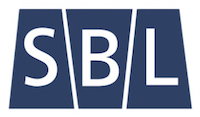After an interesting conversation with a PI partner on Skype, I looked back and saw a blog post on setting boundaries that needed expression.
I remember from when I started my freelance book indexing business the feeling of not wanting to turn down any jobs, because, who knows if another one would show up to pay the bills? It’s tempting to run our businesses from this fear place. The result is that we often waste time on projects that don’t deserve our effort or just don’t suit our brains. As a result. the hourly rate often gets reduced to something a lot closer to the minimum wage than is necessary to keep our businesses going.
So, in the long run, saying “yes” to every client, or to multiple index modifications, maybe to certain subjects or documentation types if they don’t suit you, is really counterproductive both for the client (it will be hard for you to stay focused and do the best job) and for you.
Scholarly Book Scope Creep
Specifically, my PI partner and I were discussing a scholarly book she had worked on that involved a lot of modifications by the author after she’d finished the index. The multiple modifications problem itself calls for setting boundaries around your time and the need to levy a surcharge if necessary (for me, that would be after a couple of hours of extra work).
Speaking of the challenges of scholarly books in particular, though: I’ve “specialized” (lots of different subjects, but a common complexity of text) in scholarly books for university presses since I began indexing in 1995. Although the subject matter may be interesting, I really find that these types of books tend to be under-compensated for indexing. It takes a tremendous amount of time and thought to structure indexes for them. Charging upwards of $5 to $6/page for tradebook-trim-sized scholarly books, because of the level of detail and subject analysis they require, is appropriate, but grant money for publishing often does not keep up with inflation. Professors can end up in a financial bind trying to cover their publications costs, so indexing rates tend to be lower than might be appropriate for the effort involved. We indexers have to then decide if we can index the material to our standards fast enough to make it worthwhile.
I totally see why many indexers will not work on scholarly books at all as a result.
Lessons Learned, Boundaries Set
As a little lesson in boundary-setting patience paying off, though, several years ago I dropped a long-term scholarly book client. They had used the same indexing page rate for more than a decade and weren’t interested in raising it to meet my current rate at the time (in about 2010). I was sorry to lose their very interesting book projects, but it just wasn’t worth it anymore. They were obviously able to find indexers who were willing to work for what became a rather low rate over time. I just had to set that boundary and take that loss in regular work.
In the interval, I gained and lost other clients to various publishing industry shifts. I also learned that turning down one client wasn’t going to destroy my business permanently. I had had plenty of time to build a reputation as a quality book indexer prior to losing this client, I continued to stayed visible on the Web, and I also expanded into copyediting and proofreading. But even if I hadn’t had all that experience, I still would have been better off, I think, without a client that paid a rate so much lower than others with similar books to work on.
I did eventually end up working for this client again once several years ago at my current scholarly book rate. I did have to wait for awhile for them to catch up, but the reputation I had established caused them to think of me even after a long interval of not using me as an indexer. Unfortunately, that experience hasn’t been repeated since.
Running a freelance publishing services business can feel like working without a net, and in some respects it is, but in the long run, quality work tends to win out, and it also keeps you top of mind with clients even when you say no. As always, fences make good neighbors.





Leave a Reply